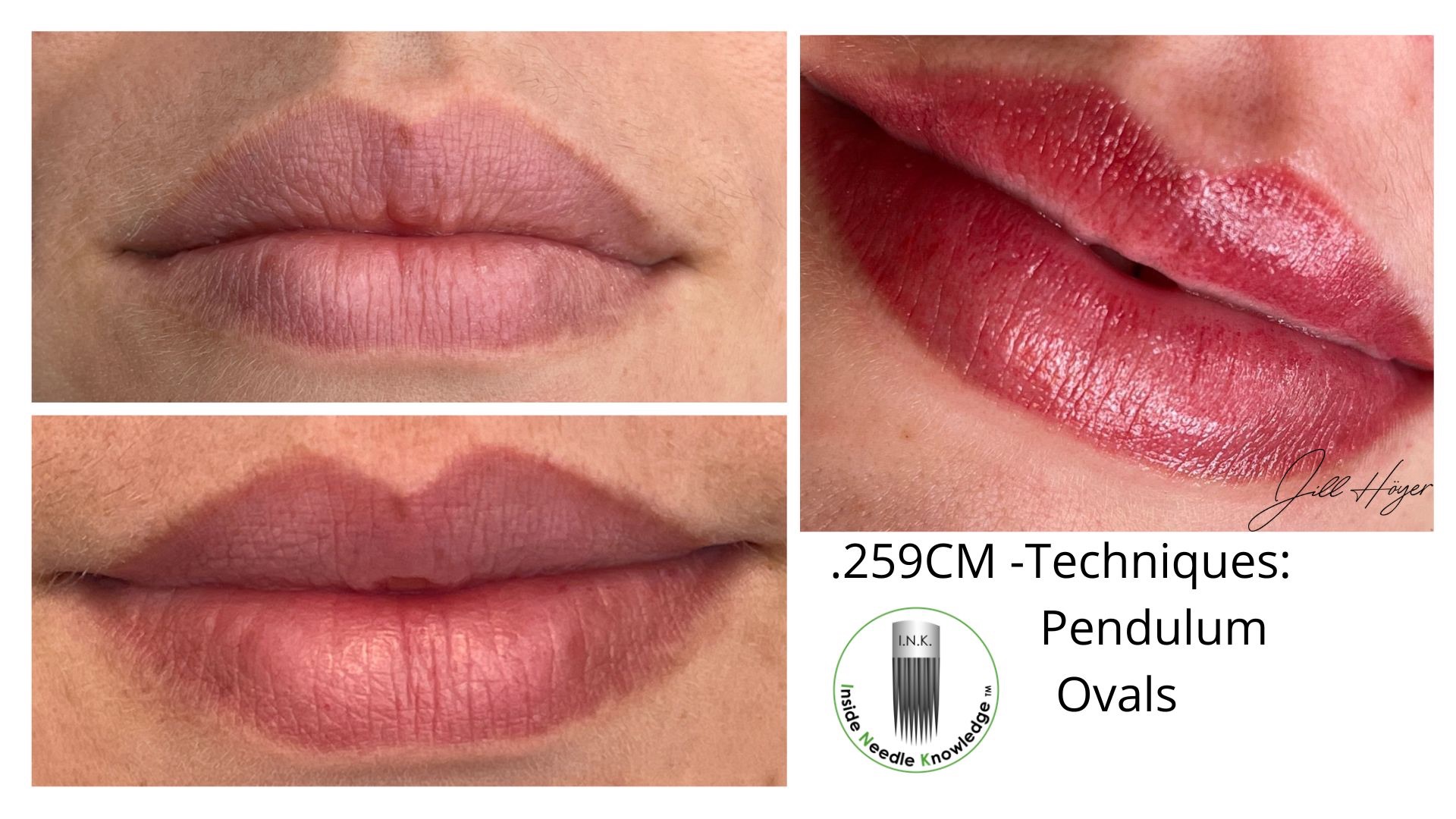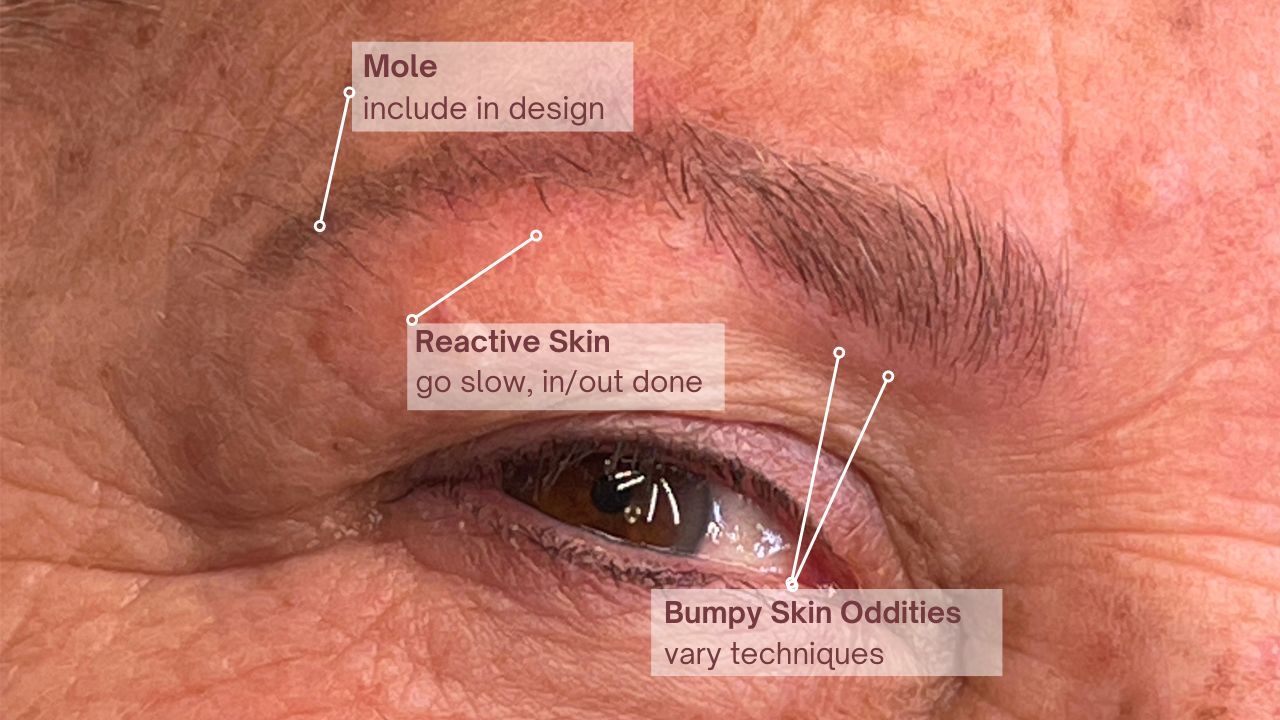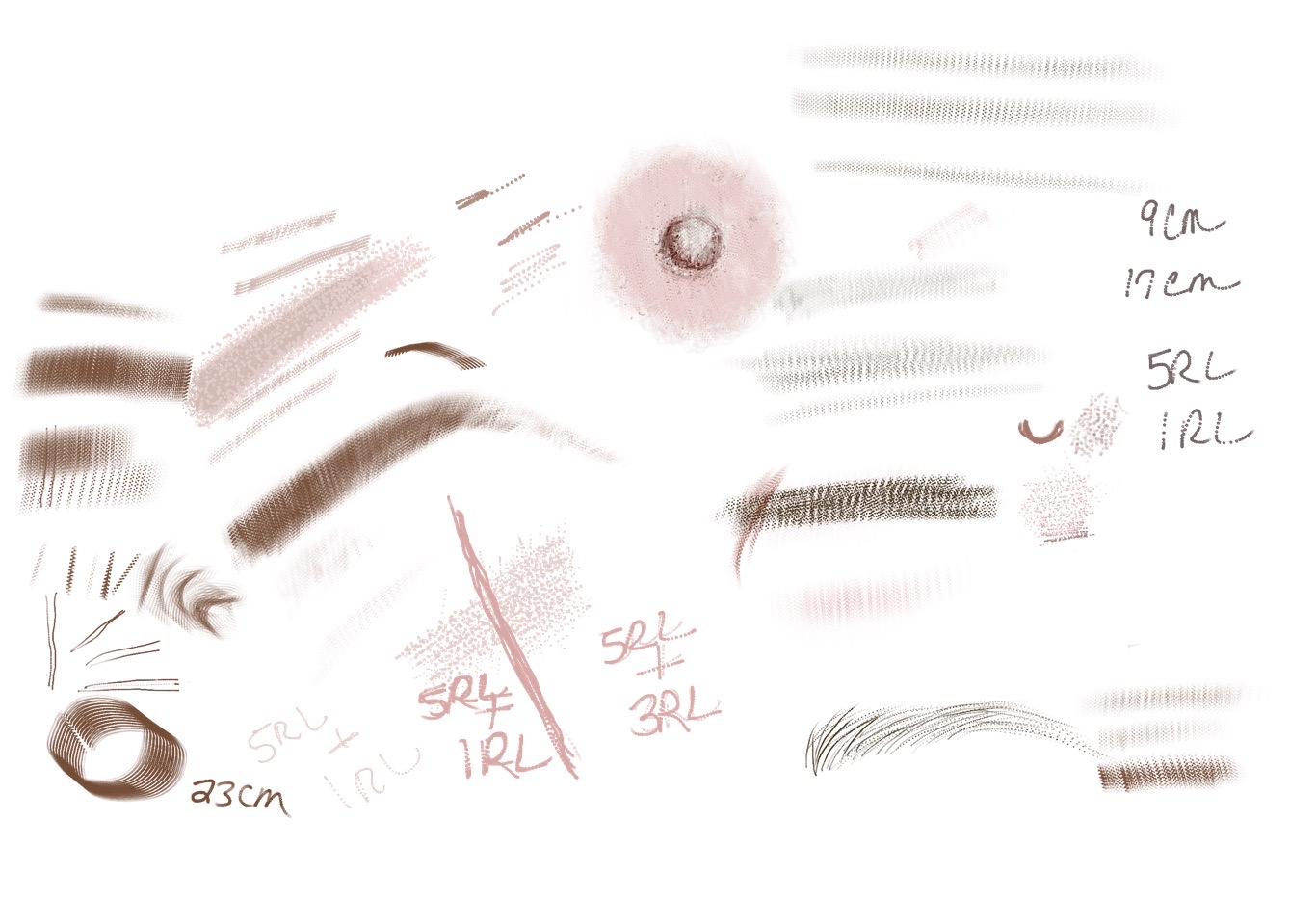Mastering the Art of Shading Needles in Permanent Makeup: Elevating Your Craft

As a permanent makeup (PMU) artist, the choice of needles is essential for delivering flawless, long-lasting results. Shading needles, in particular, play a crucial role in creating depth, subtle gradients, and a natural appearance. Whether you’re a seasoned professional or a newcomer in the PMU world, understanding the ins and outs of shading needles can significantly enhance your artistry and client satisfaction. Let’s delve into why shading needles are vital and how to master their use in your craft.
1. Understanding Shading Needles and Their Types
Shading needles are designed to implant pigment in a way that mimics natural gradients and soft edges. Although outlining needles create defined borders they can be used for shading with proper hadn't and machine speed. Typical shading needles are meant for smooth transitions and depth. Here are the common types used in PMU:
-Round Shaders (RS): These needles are grouped in a circular pattern and can be used for small areas that req...
Smooth Shading Techniques: The Power of Curved Magnum Needles in Permanent Makeup

As professional permanent makeup artists, we constantly strive to refine our skills and explore techniques to deliver outstanding results to our clients. In this educational article, we will discuss the art of smooth shading using curved magnum needles, sharing valuable insights and tips to help PMU artists elevate their shading game.
Understanding Curved Magnum Needles: Curved magnum needles are indispensable tools in the realm of permanent makeup shading. These needles are uniquely designed with a curved configuration, featuring a fan-like arrangement of grouped needles. The curvature facilitates optimal pigment distribution, making them highly effective for creating seamless gradients. The results are an airbrush type of pattern
Benefits of Curved Magnum Needles:
-
Improved Efficiency: The curved shape of magnum needles enables artists to cover larger areas more efficiently. By maximizing the surface contact with the skin, shading procedures can be completed more quickly while
...
Tattooing Challenging Skin Types
When attooing over any type of damaged skin, realistic expectations are a must. While permanent makeup can help enhance features and conceal imperfections, it may not completely eradicate the effects of damaged skin.

- MOLES can be incorporated into the design but usually tattooing over a mole isn’t advisable due to unforeseen circumstances such as a mole developing into a cancerous one.
- REACTIVE SKIN aka skin that reddens immediately can be a challenge when reading your ink. I find working slowly and getting in the color with least the amount of passes (that make the skin redder) is a good approach. The approach is In/Out/Done. I may use a larger needle to implant more color quickly, slow my hand speed, or alter techniques to soft pointillism, (with a smaller needle) which doesn’t redden the skin as much as whip or pendulum shading can.
- BUMPY SKIN ODDITIES may or may not take color. I point these areas out to my clients because many aren’t aware they even have oddities in the ...
Curved Magnum Quick Technique Tips
Many techniques can be achieved with most any needle configuration including magnum needles. However, the magnum needles really shine when it comes to efficient coverage with an airbrush quality. The results can be soft or packed in solid. The effect form the magnum configurations are more air brushed looking than pixels that you would get from a round needle.
During the video I demonstrate a few techniques:
- Stippling: you can vary pressure for different opacities of color
- Small movements such as ovals: pack in color
- Pixel short movements on the surface. Either direction works and cross hatching will help blend the color.
- Long sweeping /brushing movements build the color softly. Wipe and check frequently.
- Back brushing is great for less color, such as top of the brow, blending down from the lip line for a borderless effect and also for areola edges. It's a personal favorite technique.
- Moving forward at an angle will deposit more color than using the magnum at a 90 degr...
Digital Tattoo Needles
Do you ever wish you could practice tattooing without ink? Well, you can with an app.
There are tattoo apps that let you import a photo, select a variety of needles, color, speed, force/pressure and more. While the translation isn't exact, exploring hand movements, machine speed, hand speed, needles, and layering patterns and colors, with an app and Apple Pencil can improve your tattooing skills and techniques for sure.
Below you can see different patterns, combination use of needles from liners to mags and color selections.

The app in the video is called Tatt App by Cody Deegan available in the Apple App Store.
The tutorial inside the app ishelpful and the learning curve in the Tatt App is minimal.
To your PMU success,

PMU Artist & Needle Specialist
Inside Needle Knowledge
Purchase the I.N.K. Course Now
The Single Needle Pixel Effect
Can you believe all the single needle sizes available in today's PMU market?
The single needle used during the "fine line" era of traditional tattooing for entire tattoos, has been primarily used in PMU for pointillism, hair strokes and a shaded effect known as "the pixel technique." Although most needles could be used to do the pixel technique, this video and article is mainly about the single needle sizes used to pixel and when you may choose one size over the other.
Using a single needle or group of needles, the pixel technique is a combination of machine speed and hand speed that creates a dot like pattern in the skin. The slower the hand speed the closer the dots and the faster the hand speed the further the dots are apart. With the pixel technique, there is skin space between pixels and this lends to a soft look similar to powder.
With so many different sizes and tapers of single needles available, which sizes are optimal for pixelating? Based on my experiences and needl...
Liner-Shader Guide
As PMU artists we have a lot of needle choices. I use to think I could only use liners for lining and shaders for shading. I realized I can use any needle, just as long as I know how to use it. Of course, some needles are better "tools" for the procedure at hand, but I've learned not to limit myself in my needle choices just because they are called a liner or shader.
Knowing how to use a variety of needles with several techniques saves time during procedures as you don't always need to switch needles or have two machine setups. More importantly, is the artistry that develops in understanding our needle patterns or "footprint" from both liners and shaders and using them interchangeably.
Since liner needles (more than a single needle) are typically closer together than shader needles, the pattern/imprint of color is denser. You may come across situations where you want to shade with liners or use a shader needle, with it's broader pattern that covers more surface area and deliver...
Tattoo Needle Sizes and Tapers
With so many needle choices today it can be a bit confusing. Starting with the basics, the video explains all about our needle size systems and tapers.
To your PMU success,

PMU Artist & Needle Specialist
Inside Needle Knowledge
Powder Brows make a comeback as Ombre Brows
Imagine how pleased I was to see in the latest on-line edition of Skin Ink that the Ombre eyebrow technique received a lot of praise and attention. My admiration for the Blended Brow™ (a version of the Ombre or combo brow) did not happen overnight. I am an entrepreneur; I create and I remain current in my profession. I too, as many have, admired the immediately after appearance of the hairstroke, microblading, embroidery brows, or whatever marketing names were used, but I know the skin, and I know needles, and I know how pigments/inks behave in the skin over time. I, and other PMU artists, already anticipated what the hair strokes (and all associated marketing names used for lines in the brows that mimicked the appearance of eyebrow hairs) would not remain crisp, have the expected longevity, and that clients would ultimately request more brow coverage that would last longer.
Based on my client’s input, regardless of how attractive the name or the media pictures they saw of the tec...
A Thick Eyeliner Tattoo?

Which eyes could be tattooed with a thick eyeliner? Tattooing the eyes can be a challenge and a thick eyeliner poses risks. Many women would love to diminish the morning eyeliner chore. Permanent makeup would seemingly be a great solution. Well, it is, but the thickness of the permanent line may not be the same thickness that you apply with your topical makeup. WHY NOT?

Wrinkles (3,5)- the permanent eyeliner will never be straight when healed when the skin is crepey and folds. Photo
Distended Capillaries (2,3,6)– This is caused by the popular eyelash growth serums. The pigment will migrate and follow the capillaries causing color displacement.
Thin Skin (3,6)- Delicate skin must be handled with care as it can easily tear and capillaries are often prevalent.
Which eyes could be tattooed with a thick eyeliner? If you guessed Photos 1,4 you are correct. However, I still don’t recommend to tattoo a thick eyeliner.
Photo 1 is my healed work on a healthy skin without the influence ...
